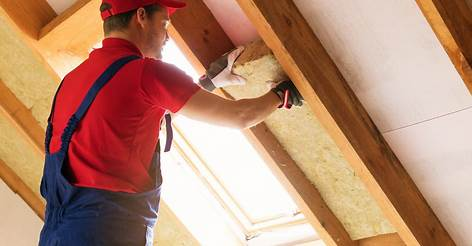In recent years, the construction industry, a fundamental part of our modern society, has seen notable transformation thanks to the adoption of cutting-edge materials.
These changes go beyond altering construction practices; they’re also enhancing energy efficiency, durability, and sustainability. This article explores the influence of these materials, with a particular focus on commercial pipe insulation, various panel systems, and insulation solutions, shedding light on their role in shaping the future of commercial and industrial construction.
Revolutionizing Energy Efficiency: Cutting-Edge Innovations
Commercial Pipe Insulation
One of the key areas where material innovations are making a substantial impact is in commercial pipe insulation. Insulating pipes is critical for maintaining energy efficiency in commercial and industrial facilities.
Traditional insulation materials, such as fiberglass, have served their purpose, but new advancements are taking energy conservation to the next level. High-performance insulation materials for pipes are engineered to provide superior thermal resistance, ensuring that the heat of cold within pipes remains efficiently contained.
Aerogel insulation, often called “frozen smoke” due to its extremely low weight, is an innovative material known for its excellent heat insulation properties. It’s particularly effective for insulating pipes because of its ability to reduce heat transfer. This not only saves energy but also cuts costs for businesses. Aerogel insulation helps pipes last longer by protecting them from extreme temperatures and moisture.
Another noteworthy innovation in commercial pipe insulation is the use of vacuum-insulated panels (VIPs). VIPs are composed of a core material, such as fumed silica, enclosed within a high-strength barrier material. The core material is under a vacuum, which virtually eliminates gas conduction, allowing VIPs to offer exceptional thermal resistance. These panels are slim and lightweight, making them suitable for insulating pipes in confined spaces or retrofitting existing structures. The exceptional insulation properties of VIPs lead to reduced energy consumption, ultimately contributing to a greener and more sustainable future in commercial and industrial construction.
Building Panel Systems
The era of relying solely on basic brick and mortar in construction is a thing of the past. In the realm of building panels, there has been a significant change in how the construction industry completes buildings.
Advanced Composite Materials (ACMs) panels are becoming more popular because they’re versatile, durable, and look good. ACMs are made from layers of aluminum with a plastic core, making them more durable but not heavy. They are commonly used for things like building facades, cladding, and interiors, which gives architects and designers lots of options for how they can be used.
An impressive characteristic of the acm panels systems is their ability to endure tough weather conditions. They can withstand harsh environmental elements like UV exposure and extreme temperatures without showing signs of wear and tear or losing their visual appeal. This durability makes ACM panels a superb option for commercial and industrial construction, where the long-term appearance and endurance of building exteriors are of utmost importance. Furthermore, the lightweight design of ACM panels simplifies installation and lessens the structural load, providing cost-effective solutions while maintaining high performance.
ACM panels contribute to sustainable practices in construction. They’re frequently crafted from recyclable material, and their long-lasting nature reduces the need for frequent replacements and maintenance, lessening the environmental impact of construction projects. This involvement positions ACM panels as a key player in transforming the construction industry, endorsing energy-efficient, durable, and eco-friendly building solutions.
Eco Friendly Insulation Options
Insulation solutions have become key in enhancing the energy efficiency and sustainability of commercial and industrial construction projects. Traditional insulation materials, like fiberglass and foam, have long been the go-to, but new eco-friendly options are gaining traction. Sustainable insulation materials, like metal building spray foam insulation, offer improved thermal performance while reducing the environmental impact.
One notable innovation in this regard is the use of recycled and sustainable materials for insulation. These materials are often derived from post-consumer and post-industrial waste, making them environmentally responsible choices. One example is recycled denim insulation, which repurposes old jeans into effective insulation products. Such insulation materials not only conserve energy but also help reduce the burden on landfills and limit the need for virgin resources, aligning with sustainable construction practices.
Furthermore, natural insulation materials, such as sheep’s wool, cellulose, and cork, are gaining attention for their renewable and biodegradable properties. These materials provide excellent thermal insulation and acoustic performance while having a minimal environmental impact. They also improve indoor air quality by being free of harmful chemicals commonly found in traditional insulation products.
Eco-friendly insulation options like these contribute to the reduction of greenhouse gas emissions, energy consumption, and the depletion of natural resources. As sustainable construction practices become increasingly important, these innovative insulation solutions are pivotal in achieving environmentally conscious and energy-efficient commercial and industrial buildings.
Shaping a Greener Future in Construction
Material innovations in commercial pipe insulation, panel systems, and insulation solutions are driving a significant transformation in the construction industry. These advancements redefine standards and provide cost-effective, eco-conscious solutions crucial to shaping the future of commercial and industrial construction.
From cutting-edge pipe insulation like aerogels to durable ACM panels for exteriors, these innovations improve energy efficiency and lifespan. The adoption of sustainable insulation materials for metal buildings not only enhances thermal performance but also supports environmental sustainability, curbing the industry’s carbon footprint.
Join us in our commitment to sustainability and be part of the sustainable construction movement. Explore the newest eco-friendly initiatives and find ways to actively contribute at https://cceonlinenews.com/.
Also Read
The whitest paint is here – and it’s the coolest
Building Tomorrow: The Role of Specialty Chemicals in Modern Construction

